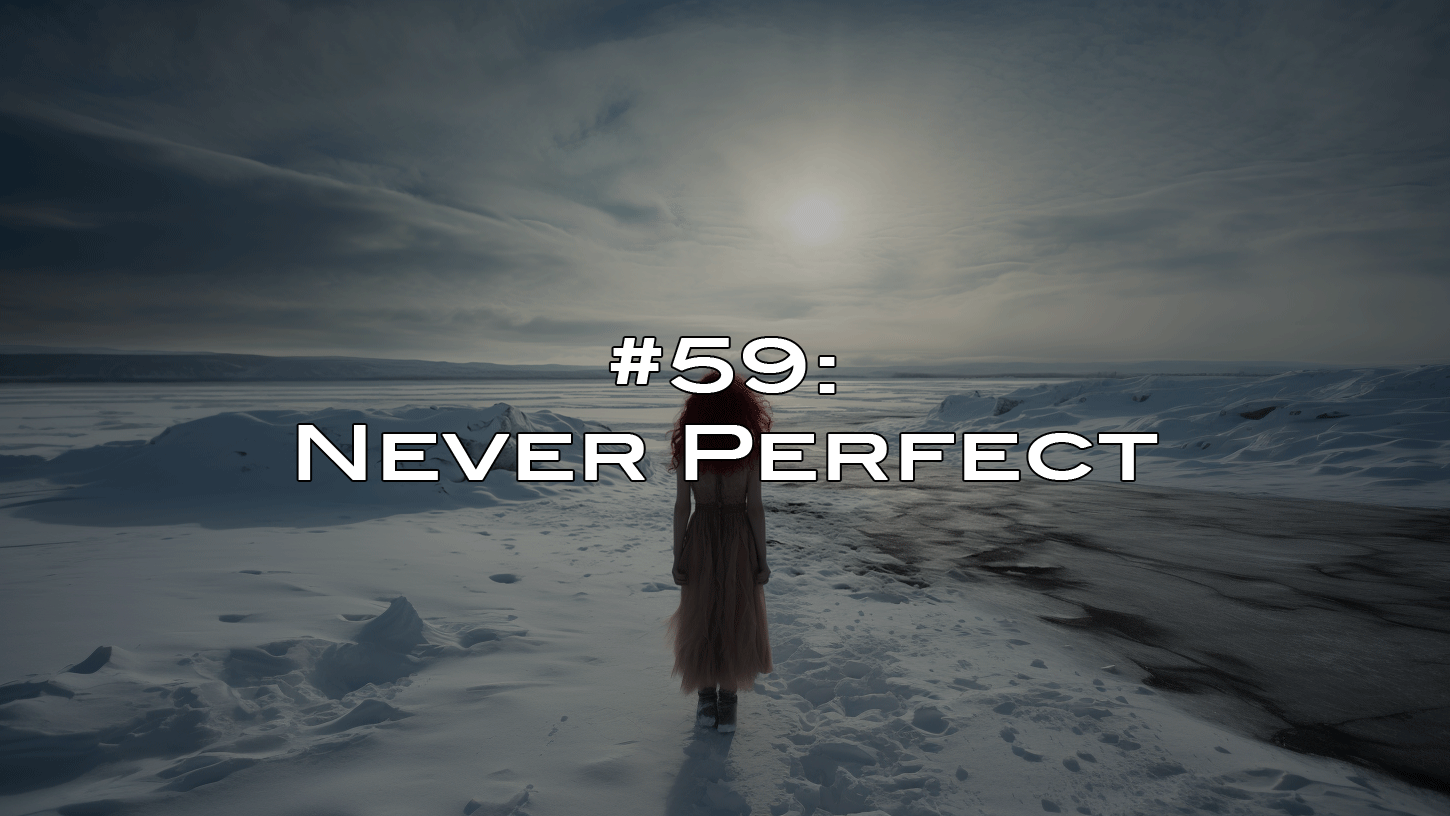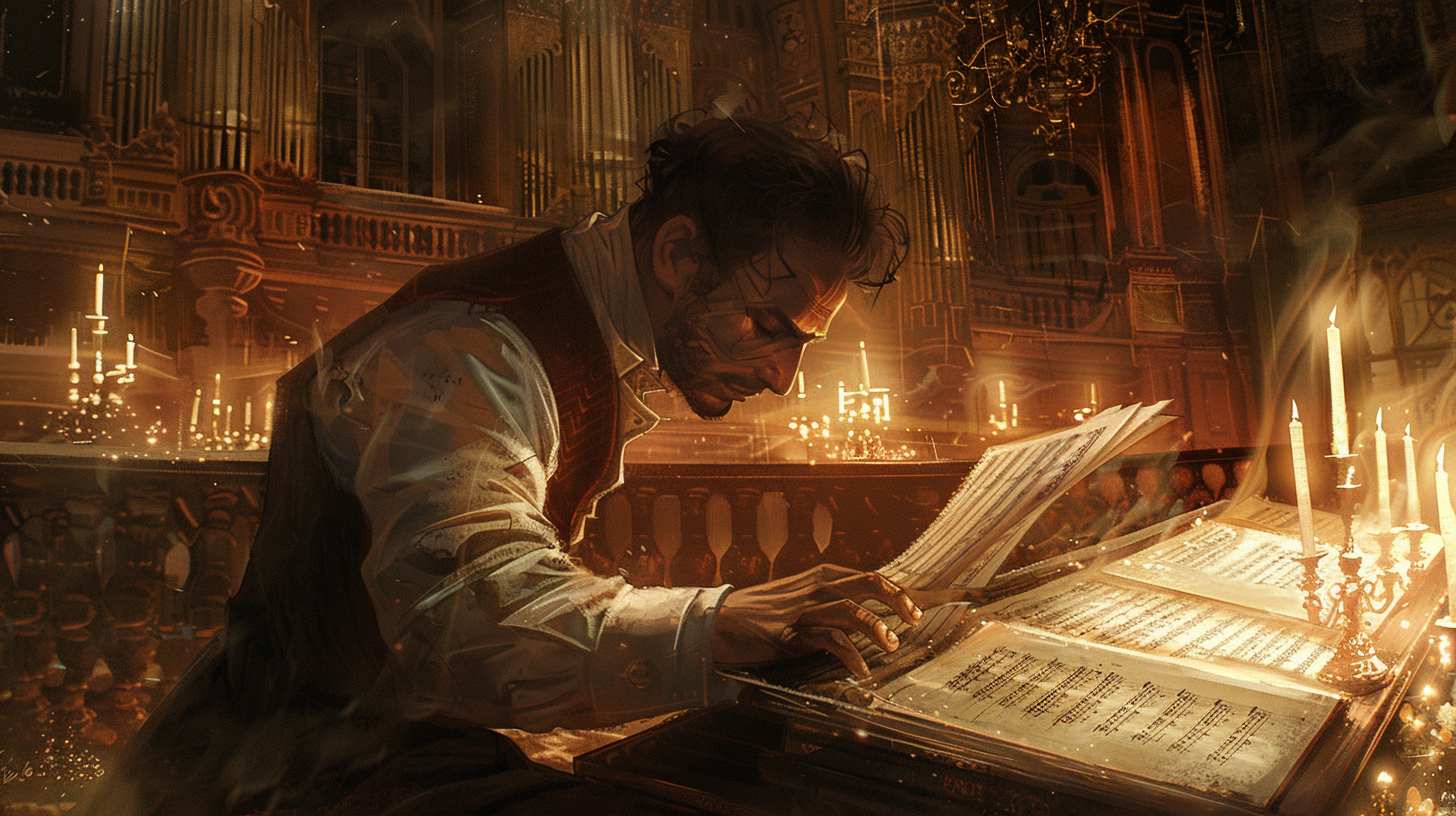Never Perfect
Mar 11, 2024
Art is the most personal act. By definition, an original piece of art can only come from within. Each if us is influenced by that which has come before, of course, but the finished product is unique, as are you. Our creations can be inspiring, controversial, quaint, profitable, even life-saving. But never perfect.
Artists of all types seek to represent themselves in the best possible light. If art is truly an expression of the artist, it makes sense, on the surface, that there is no bridge too far, no effort unworthy, no time too long to get it right.
We owe it to ourselves, our audiences, to microscopically examine each detail, every decision. Who wants to be seen as sloppy or haphazard? This is our work, damnit!
A Bar Too High
So on and on it goes. What if the “perfect” guitar sound is just around the electronic corner? You still haven’t tried every pickup setting on every guitar with every amp head and every setting on that head and every speaker cabinet and every type of speaker and every microphone and…
You are now firmly mired in option paralysis. You won’t live long enough to try the 265,873,618,422 possible combinations, nor would you be able to hear them if you did.
The longer you agonize over a paragraph, a color, a sound, the less you are able to make sense of it. Even a single word, if you repeat it long enough, will soon become a series of meaningless sounds. The psychological term for this is semantic satiation.
This is why you need frequent breaks when creating. Your ears, your eyes, your mind, all need to rest before they can be at their objective best.
But there is a bigger, more foundational reason not to chase the perfect representation of the sound in your head, the tone of a written dialogue, the blocking and lens combination for that scene you envision.
It doesn’t exist.
Perfect is impossible.
With skill and experience you will get very close, on your best days. But the concept of “good enough” must reign supreme.
Perfect For Whom?
There are several reasons that “perfect” is an ideal, not a reality.
We are not perfect. That’s what makes us unique. Our conception of the perfect blog, the perfect song or painting will change from day to day as a function of our mood, our recent experiences, our nutrition and sleep status.
And even if you suspend disbelief for a moment and imagine that you had found perfection in one of your creations, it would only be true for an audience of one: you. Given that one of the primary functions of art is to be shared with others, there is a mathematically impossible chance they will all find it perfect for their own realities.
We kind of instinctively know this. Yet we toil away, late unto the night, sleep deprived and discouraged, as though we will find “perfect.” As though we have unlimited time on the planet.
What’s Really Going On
When we pass the point of working on a creation to legitimately make it as good as we can, nitpicking serves a completely different purpose. We continue to scratch and polish and shine not because it makes our work substantively better, but because it delays that which we most fear: judgement.
“Will they like it?” “Has it already been said?” “Is it really ‘me’?” “Is it too far outside my niche?” As long as we continue to pick at it, we don’t have to worry because no one is going to see or hear it anyway.
Perfectionism is fear.
Watch a six year-old work on a crayon drawing. The eye-hand coordination isn’t what it will be in a few months, let alone a few years. Undaunted, our young artist-in-the-making gives the piece her all; bent over the work in total concentration, tongue held just right. And then goes outside to play.
This is the state to which we should aspire: Maximum effort, zero attachment.
Know When to Stop
It took me years (decades?) to get to the psychological and emotional point that I could pour myself completely into a musical composition, an article, a book and still be aware of the point of diminishing returns. Yes, I can continue to tweak the compression ratio or the parametric EQ. Yes, I can continue to agonize over the “perfect” number of citations for that non-fiction piece, the exact wording of that character’s reaction to showcase their personality in a novel.
But when I am objective enough to realize that the corrections have moved from artistic improvement to neurotic perfectionism, it’s done. Release it into the wild and start on the next one.
The exact point at which “it’s done” will vary over time and from piece to piece. The more we create, the sharper our discernment.
But keep in mind that there is an endpoint, and watch for it. Then let it go. Wish it well, have a little “coming of age” party for it if you like. And put it where people are anxiously waiting for it, whether they know it or not.
And fear not. Remember, it’s none of your business what other people think.
Never Perfect
The world needs your art, your perspective, your experience. Far better to contribute your imperfectly valuable creation to someone who may need that exact insight than to keep it locked away for fear of rejection or of being misunderstood.
It’s never going to be perfect. It doesn’t have to be.
I am a creator (musician, writer, live-streamer and podcaster), entrepreneur, educator and counselor.
To learn more about how to use these concepts or to inquire about working with me, you can contact me through my website, the comments section on my Substack or Medium accounts or The Authentic Life Blog page. If you have found value in this article, consider following my Instagram and X (formerly Twitter) accounts. To support this community, you can even Buy Me A Coffee or donate through my Patreon account.
Subscribe to my River of Creation podcast - The Podcast for Creators, and my associated YouTube channel, coming later this year, wherever you download your podcasts.
- JWW
Subscribe to the HARDCORE HAPPINESS blog
Never miss a post, and get goodies meant only for our community!
We will never sell your info. Ever. EVER!
